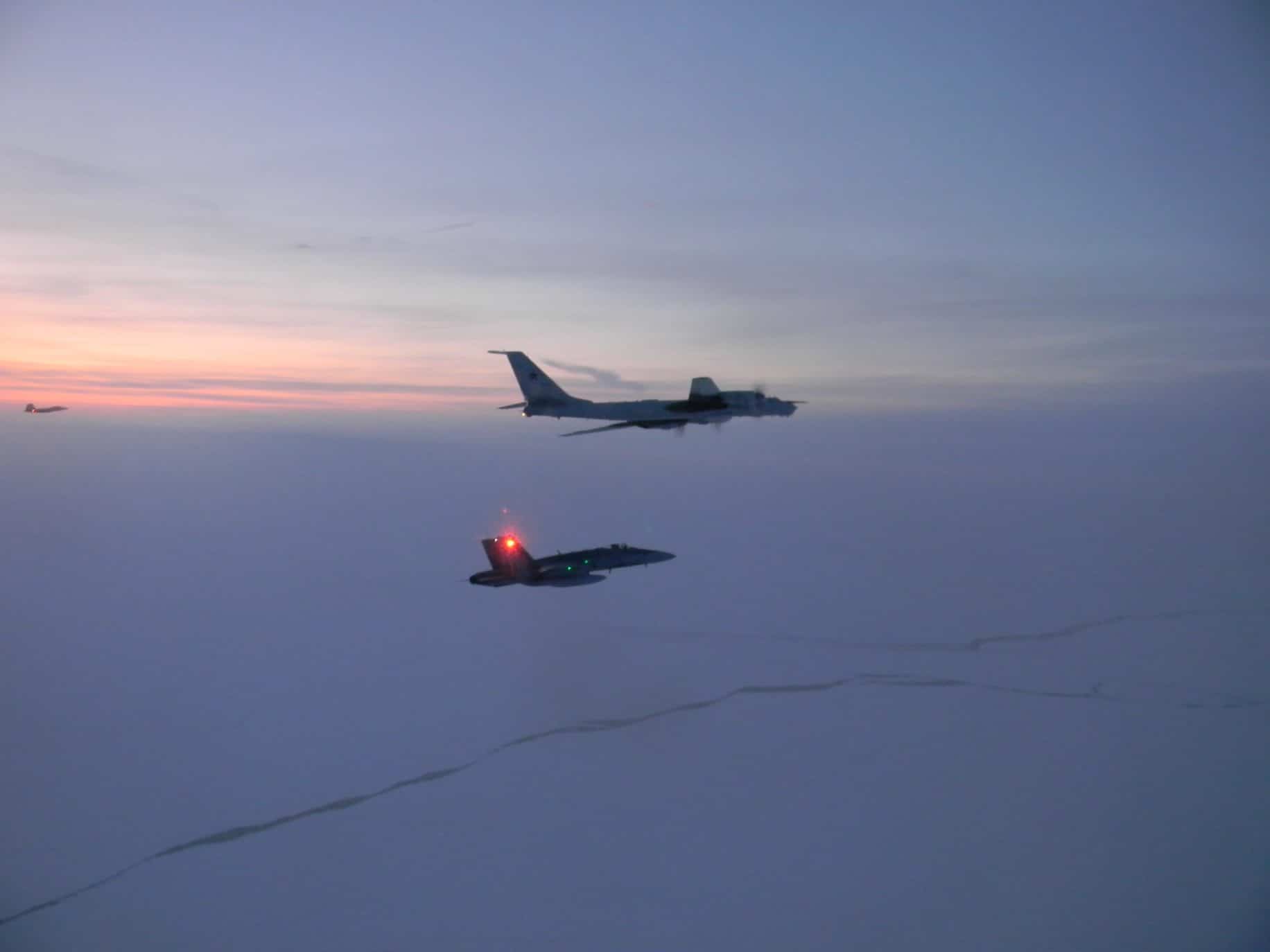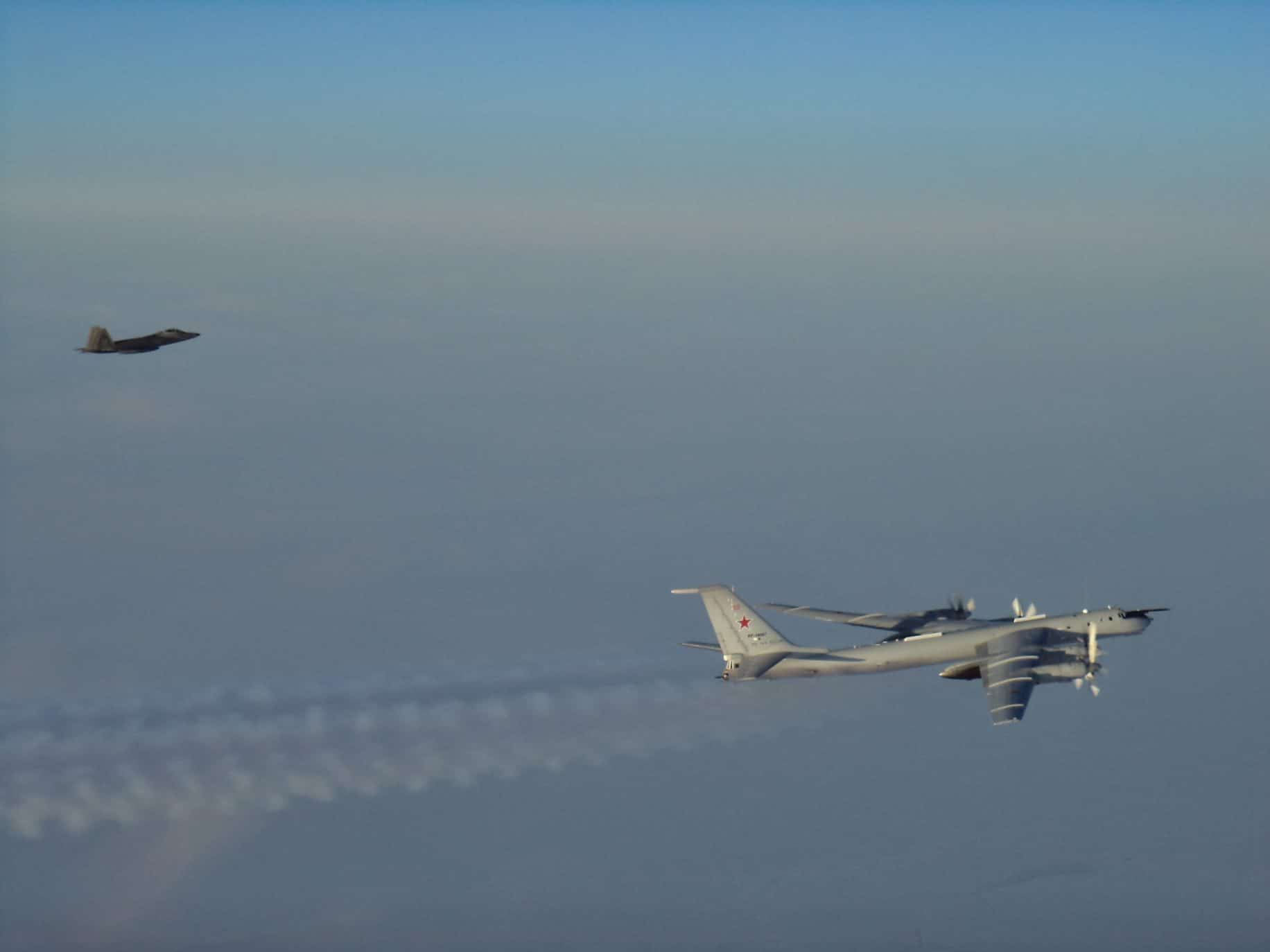Two Russian Tu-142 reconnaissance planes came within 50 miles of the Alaskan coast on Monday, prompting U.S. and Canadian jets to mobilize and turn them away.
The North American Aerospace Defense Command (NORAD) dispatched U.S. F-22s and Canadian CF-18s, along with a KC-135 Stratotanker and E-3 Sentry Airborne Warning and Control System (AWACS) aircraft to keep track of the Russian spy planes and escort them away. NORAD announced the pursuit and escort effort on Twitter on Tuesday.
— North American Aerospace Defense Command (@NORADCommand) March 11, 2020
The aerial pursuit and escort effort saw the Russian aircraft continue inside the Alaskan Air Defense Identification Zone (ADIZ) for four hours before the Russian aircraft broke off. Though the Russian aircraft ventured close, NORAD said they did not enter U.S. or Canadian airspace at any point.

NORAD F-22s, CF-18s, supported by KC-135 Stratotanker and E-3 Sentry AWACS aircraft, intercepted two Russian Tu-142 maritime reconnaissance aircraft entering the Alaskan Air Defense Identification Zone on Monday, March 9th. (NORAD photo/Released)
“NORAD continues to operate in the Arctic across multiple domains,” Gen. Terrence J. O’Shaughnessy, the commander of NORAD said in another Tweet. “As we continue to conduct exercises and operations in the north, we are driven by a single unyielding priority: defending the homelands.”
“NORAD continues to operate in the Arctic across multiple domains,” said General Terrence J. O’Shaughnessy, NORAD Commander. “As we continue to conduct exercises and operations in the north, we are driven by a single unyielding priority: defending the homelands.”
— North American Aerospace Defense Command (@NORADCommand) March 10, 2020
This is not the first instance of U.S. aircraft scrambling to intercept Russian military aircraft flying close to Alaska. In Sept. 2018, two NORAD F-22s intercepted two Tu-95 “Bear” long-range bombers flying in the Alaskan ADIZ just ahead of planned military exercises in the area.

NORAD F-22s, CF-18s, supported by KC-135 Stratotanker and E-3 Sentry AWACS aircraft, intercepted two Russian Tu-142 maritime reconnaissance aircraft entering the Alaskan Air Defense Identification Zone on Monday, March 9th. (NORAD photo/Released)
In August of 2019, Russian aircraft similarly intercepted a NATO F-18 shadowing the official plane of the Russian Defense Minister as it flew over the Baltic Sea. At the time, NATO indicated the fighter had approached the Russian aircraft to obtain a visual identification, as it had flown close to NATO airspace without identification or an established flight path. Russia responded to that incident by placing nuclear-capable bombers at a Russian base across the sea from Alaska
Close interactions have also occurred between U.S. and Russian forces at sea. In December 2019, the U.S. Coast Guard notified civilian ships near Georgia and South Carolina to be aware of a Russian spy ship operating unsafely around a U.S. Submarine base. The spy ship had been observed without running lights in low visibility conditions, making erratic movement and not responding to attempts by other ships to communicate and coordinate safe maneuvering.



